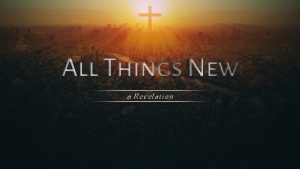
Shownotes
Wisdom-Trek / Creating a Legacy
Welcome to Day 1166 of our Wisdom-Trek, and thank you for joining me.
I am Guthrie Chamberlain, Your Guide to Wisdom
God’s Forever Family Part 2 – Worldview Wednesday

Wisdom – the final frontier to true knowledge. Welcome to Wisdom-Trek where our mission is to create a legacy of wisdom, to seek out discernment and insights, and to boldly grow where few have chosen to grow before.
Hello, my friend, I am Guthrie Chamberlain, your captain on our journey to increase wisdom and create a living legacy. Thank you for joining us today as we explore wisdom on our 2nd millennium of podcasts. This is Day 1166 of our trek, and it is Worldview Wednesday.
Creating a Biblical worldview is important to have a proper perspective on today’s current events. To establish a Biblical worldview, it is required that you also have a proper understanding of God and His Word. On our Worldview Wednesday episodes, we are in a series in which we are covering another detailed review of a book from one of today’s most prominent Hebrew scholars Dr. Micheal S. Heiser. We are taking a deep dive and will share Dr. Heiser’s insights into the question, which is also the title of his book “What Does God Want?”
God’s Forever Family Part 2

As we continue our book review, as part of God’s forever family, we will first focus on our everlasting identity with God. Today as part of His Kingdom, we are to be imagers of God. That is, others should see God through us. We cannot fully portray God today, but we will someday be transformed and made like Jesus.
1 John 3:2 declares, “Dear friends, we are already God’s children, but he has not yet shown us what we will be like when Christ appears. But we do know that we will be like him, for we will see him as he really is.”
The same thought is expressed in different ways in Romans 8:29, “For God knew his people in advance, and he chose them to become like his Son, so that his Son would be the firstborn among many brothers and sisters.”
Philippians 3:20-21 explains, “But we are citizens of heaven, where the Lord Jesus Christ lives. And we are eagerly waiting for him to return as our Savior. He will take our weak mortal bodies and change them into glorious bodies like his own, using the same power with which he will bring everything under his control.”
2 Corinthians 3:18 also says, “So all of us who have had that veil removed can see and reflect the glory of the Lord. And the Lord—who is the Spirit—makes us more and more like him as we are changed into his glorious image.”
Our destiny, which is already in process, is to become completed imagers of God in the manner of the ultimate image of God—Jesus.
The Bible finishes our story with resurrection and transformation. We are raised to everlasting life and given a glorified body, akin to the one Jesus had after his resurrection. Paul refers to it as a ‘‘immortal body” (l Corinthians [15:35]-58).
My favorite passage about our final destiny and glorification is a little more obscure. It’s a scene in the book of Hebrews, where Jesus introduces us to God and God to us. Jesus stands before God and “the congregation,” the heavenly sons of God. He confesses boldly that he feels no shame in having us as siblings in the family and then speaks to God and the supernatural members of the family. This passage is in Hebrews 2:11-12, “So now Jesus and the ones he makes holy have the same Father. That is why Jesus is not ashamed to call them his brothers and sisters. For he said to God, ‘I will proclaim your name to my brothers and sisters.
I will praise you among your assembled people.'”
This is your ultimate destiny—becoming a permanent, legitimate member of God’s family. In the end, you belong in God’s family. It’s what he’s wanted from the very beginning. That is what the whole creation is yearning for.
In addition to your everlasting identity with God, He also desires an everlasting partnership with you.
Have you ever had a conversation about what life in the new creation (heaven) will be like? I’ve heard lots of people describe it as an endless worship service, or endless Q & A session with Jesus, or a glorified church meet-and-greet. (That last one frightens introverts like me.)
While we could infer some things by imagining what life in a perfected Eden might entail, the Bible doesn’t say a whole lot about the experience. What it does say defies the sorts of guesses listed above.
Revelations 2:26 says, “To all who are victorious, who obey me to the very end, To them I will give authority over all the nations.”
Revelations 3:21 reiterates, “Those who are victorious will sit with me on my throne, just as I was victorious and sat with my Father on his throne.”
And I Corinthians 6:3 says, “Don’t you realize that we will judge angels? So you should surely be able to resolve ordinary disputes in this life.”

What do these phrases mean? We can start by asking who rules the nations now? The answer is the fallen sons of God allotted to the nations at Babel. In other words, the nations at this moment have not yet been fully (or even mostly) reclaimed by God. The expansion of the kingdom of God is a gradual process as we’ve noted—a process “already begun but not yet complete.” When the process is complete at the end of days, believers will “judge angels”—we will pass judgment on the fallen sons of God by replacing them. We will rule the nations with Jesus, our King—and brother.
According to Dr. Heiser, when he speaks about this idea, he will get certain inevitable questions: What tasks will we have? Will some believers have more authority than other believers? Will I be another believer’s boss? How can we all be rulers? Do our works dictate who is over whom?
These are all understandable questions from people who live in an imperfect, fallen world. Our perspective is tainted by the flawed, damaged world we experience. But the Bible doesn’t portray our final destiny as a boss-employee relationship. It’s a father-child relationship. We, God’s children, work with him alongside our siblings, whether human or divine. We image God together now the way we were intended to do. The brother we all look up to most is Jesus. All of God’s children have been made like him, the ultimate imager of our Father.
The point is that our rule in the new Eden isn’t about hierarchy; it’s about family partnership. When all the family members are glorified, the need for supervisory hierarchy disappears.
To be honest, we just can’t conceive anything like this. We live in a corrupted world. God wants us—he wants you—to experience life with him the way he intended it to be. And someday we will. As the Bible says in I Corinthians 2:9, “That is what the Scriptures mean when they say, ‘No eye has seen, no ear has heard, and no mind has imagined what God has prepared for those who love him.'”

Over the past several weeks, we have explored “What Does God Want?” Now you know what the Bible is really about, and the answer to Dr. Heiser’s book title, He wants YOU! It’s an amazing story.
You’re probably wondering where we go from here. There are some important concepts to think about in light of the story.
Early in the story, Dr. Heiser wrote about Abraham:
The apostle Paul used Abraham as an example of believing loyalty in Romans 4:1-12. Abraham believed and was accepted by God before he obeyed any rules. The rules were about showing he believed. They did not replace belief. Belief (faith) was the one essential thing. Loyalty to that belief—to that God—is something we’ll explore later. Today we call this concept discipleship. Belief and loyalty are two distinct things. They are related but not interchangeable. The same is true of salvation and discipleship.
That paragraph is our road map the rest of the way through Dr. Heiser’s book. The phrase “believing loyalty” will be our guide. Let’s first consider “BELIEVING.”
In the next section, which we will explore in subsequent weeks, we’re going to discuss the gospel. We’ll explore what it is and isn’t. We’ll learn what it means—what the content of the gospel is according to the Bible. That’s important because believing the gospel is how we become members of God’s family. It’s how we are saved. Salvation is by faith. It is the way God has provided salvation, the path he has created for joining his family. That all centers in what Jesus did.
Coupled with believing is “LOYALTY.”
In the last section of the book, we’re going to explore discipleship. “Disciple” is a term that means “follower.” Being a disciple of Jesus means following him—imitating him. Jesus said in John 14:9, “Anyone who has seen me has seen the Father!” Jesus lived in a way that showed he loved God —that he was loyal to his Father and his plan. Discipleship is how we show we love Jesus and love God. It’s not about earning God’s love. It’s how we thank Jesus for accomplishing God’s plan to save us. It’s not about replacing or supplementing what Jesus did for our salvation. It’s how we show we believe in what he did for our salvation (James [2:14]-26).
As I said earlier, belief and loyalty are two related, but distinct things. They are not interchangeable. The same is true of salvation and discipleship. We believe the gospel for our salvation. We show loyalty to our Savior by being his disciple!
That will conclude our lesson for this week from Dr. Heiser’s book “What Does God Want?” Next Worldview Wednesday, our focus will turn to practical steps that we can implement as we explore “What Is the Gospel?” (good news). I believe you will find each Worldview Wednesday an interesting topic to consider as we build our Biblical worldview.
Tomorrow we will continue with our 3-minute humor nugget that will provide you with a bit of cheer and help you to lighten up and live a rich and satisfying life. So encourage your friends and family to join us and then come along with us tomorrow for another day of our Wisdom-Trek, Creating a Legacy.

If you would like to listen to any of our past 1165 treks or read the Wisdom Journal, they are available at Wisdom-Trek.com. I encourage you to subscribe to Wisdom-Trek on your favorite podcast player so that each day’s trek will be downloaded automatically.
Thank you so much for allowing me to be your guide, mentor, and most of all, your friend as I serve you through this Wisdom-Trek podcast and journal.
As we take this trek together, let us always:
- Live Abundantly (Fully)
- Love Unconditionally
- Listen Intentionally
- Learn Continuously
- Lend to others Generously
- Lead with Integrity
- Leave a Living Legacy Each Day
I am Guthrie Chamberlain reminding you to Keep Moving Forward, Enjoy Your Journey, and Create a Great Day Everyday! See you tomorrow!